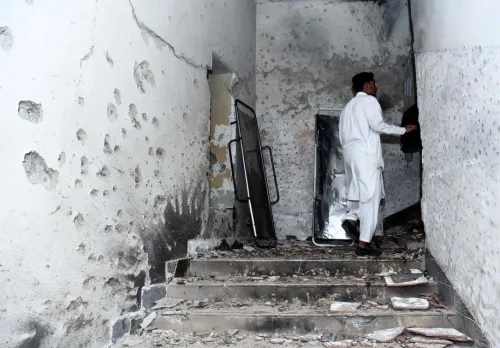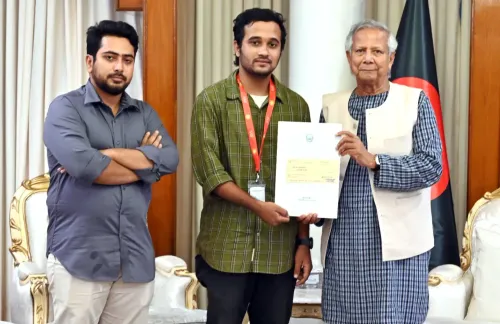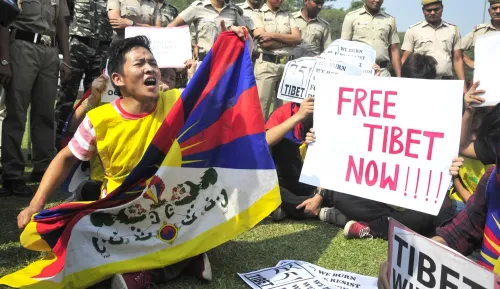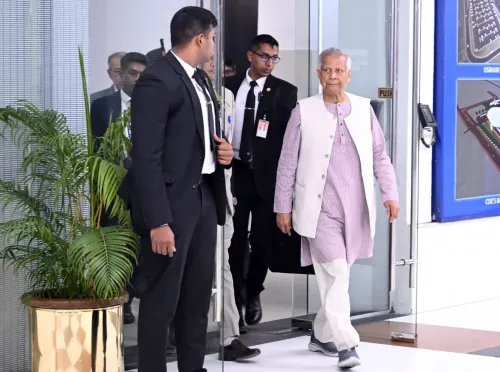What are the Key Updates on Bangladesh's July Charter?
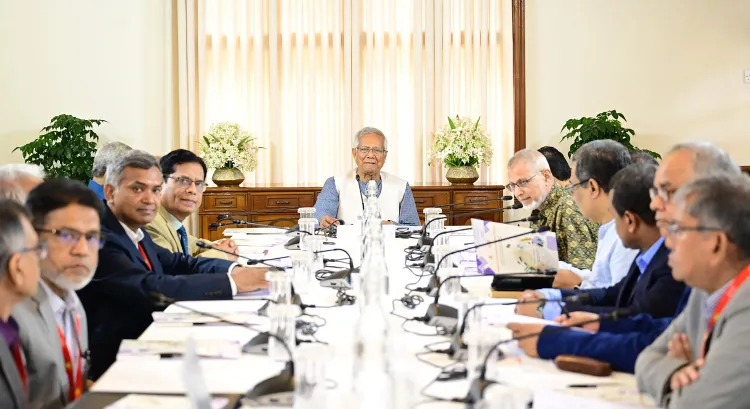
Synopsis
Key Takeaways
- The interim government of Bangladesh has finalized the July Charter.
- Presentation of the charter is scheduled for August 5.
- Political consensus is crucial for effective implementation.
- Key parties involved include BNP and Jamaat-e-Islami.
- The NCC plays a vital role in facilitating discussions.
Dhaka, Aug 2 (NationPress) The interim government of Bangladesh, under the leadership of Muhammad Yunus, has completed the draft of the July Charter, which is scheduled for presentation on the evening of August 5, as stated by the Chief Advisor's Press Wing.
This charter will be unveiled before the nation with representatives from all parties involved in last year’s July protests, according to the announcement.
Mahfuj Alam, Advisor to the Information and Broadcasting Ministry, also shared on social media that the July Proclamation will officially be announced on August 5.
"The July Proclamation is now a reality and it is imperative that it is announced by August 5. I extend my gratitude to all who have kept this issue in public discussion and facilitated its implementation," he wrote.
The interim government has distributed the final draft to various parties, including the Bangladesh Nationalist Party (BNP), Jamaat-e-Islami, and the National Citizen Party (NCP), soliciting feedback on the reform proposals, as reported by local media.
Reports indicate that significant disagreements have surfaced among key political factions, leading the National Consensus Commission (NCC) to face challenges in achieving consensus on several reform proposals during the second dialogue round.
On Thursday, Ali Riaz, Vice President of the NCC, emphasized that political leaders hold the primary responsibility for executing the July National Charter.
"The core responsibility of implementing the Charter rests with political leaders. We are confident that, having reached consensus on various matters, you can create a pathway for execution. The NCC will act as a catalyst in this process, both formally and informally," he remarked.
Political parties have voiced opposition to the stipulation requiring the implementation of reform proposals within two years of the government formation post-national elections, insisting that the July Charter should be integrated into a legal framework to ensure its enactment.
Last month, the second session of discussions involving 30 political parties and the NCC commenced amid a backdrop of political uncertainty and instability in the country.
The recent discussions aimed at finalizing recommendations from various reform commissions established by the interim government and drafting the July Charter.

